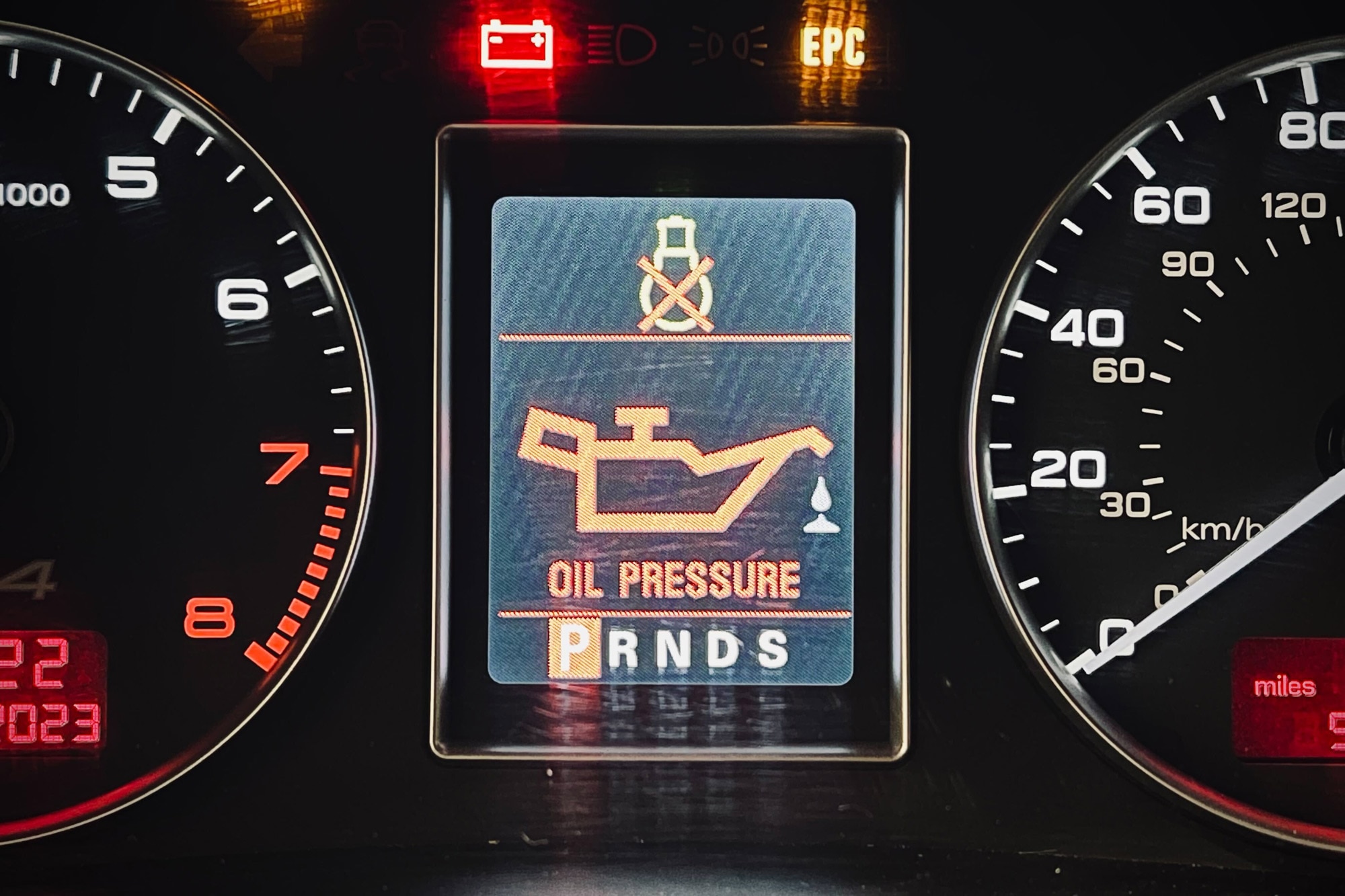What the Low Oil Pressure Light Indicates
Here's what causes low oil pressure and what you should do if you see a warning light.
 Manuel Carrillo III | Capital One
Manuel Carrillo III | Capital One
Why Proper Oil Pressure Is Essential
To do its job, oil must get into the tight spaces around the engine's metal components. This requires pressure, which is created by the resistance the oil encounters as it's pumped through the engine.
Since engine designs vary and oil pumps are specific to each engine, there is no universal standard for oil pressure. Instead, each engine has a designated operating range for oil pressure. Modern vehicles are equipped with warning lights to alert drivers if the oil pressure falls below the acceptable range.
When oil pressure is adequate, oil circulates in a continuous loop starting at the oil pan, passing through a filter, flowing through the engine's components, and then returning to the pan to repeat the process. Low oil pressure disrupts this circulation, potentially causing engine damage.
What to Do When You See a Low Oil Pressure Warning
Low oil pressure is typically caused by either a malfunctioning oil pump or, more commonly, insufficient oil. Engines gradually consume oil over time, and older or worn engines tend to consume it at a higher rate. Additionally, aging gaskets can leak and deplete the oil if they aren't replaced.
Unlike a check-engine light, which is important but not necessarily urgent, a low oil pressure warning needs immediate attention, according to Aaron Stroud, a certified master automotive technician at Orion Automotive in Ann Arbor, Michigan.
"Shut the engine off," he said. "Don't try to continue on. I think you have seconds before wear starts happening. So pull it over right away, wherever you need to, and shut it off."
Prolonging Engine Life After Low Oil Pressure
After experiencing a low oil pressure warning, you'll need to address both its cause and any potential damage done to the engine. Start with carefully listening.
"If the engine is not making any unusual noises," Stroud said, "you're probably fine."
There's a good chance you won't be that lucky, however. Unusual sounds such as ticking or persistent metal-on-metal noises could indicate worn or damaged parts that will most likely need to be replaced. That can be expensive.
Regular oil changes and checks for leaks are essential, particularly as your car ages. By staying vigilant and maintaining your engine properly, you can help ensure its longevity and avoid the severe consequences of low oil pressure.
Written by humans.
Edited by humans.
 Robin Warner
Robin WarnerA mechanical engineer by education, Robin Warner found automotive journalism by chance and quickly fell in love. With experience at three major automotive magazines as well as five years working as an engineer, Warner uses a broad yet analytical lens to look at the automotive world.
Related articles
View more related articles